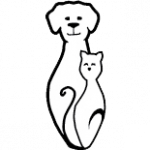Illustrated Articles
-
The Crown Pointe Animal Hospital is now able to offer your pet an alternative and complimentary prevention & treatment option to maximize your pet’s health through the use of Traditional Chinese Herbal Medicine. The general principle of TCM is to harmonize your pet’s internal and external environments such that we are able to naturally and safely re-establish the normal flow of body energy, fluids and organ function to allow the body to perform at its optimal levels.
-
The Crown Pointe Animal Hospital is now able to offer your pet an alternative and complimentary prevention & treatment option to maximize your pet’s health through the use of Traditional Chinese Herbal Medicine. The general principle of TCM is to harmonize your pet’s internal and external environments such that we are able to naturally and safely re-establish the normal flow of body energy, fluids and organ function to allow the body to perform at its optimal levels.
-
Reptile pets benefit from yearly health examinations. Regular veterinary care, to prevent problems before they occur, is necessary to ensure your pet lives a long, healthy life. Intestinal parasites and/or underlying health problems may only be identified by your veterinarian during a yearly exam.
-
Axolotls are purely aquatic amphibians. They retain external gills and a paddle-like tail for their entire life. This handout outlines habitat and food requirements, as well as potential health concerns for your pet axolotl.
-
If they are well looked after, including proper diet and husbandry, bearded dragons are reasonably hardy animals. Common health conditions of pet bearded dragons include CANV, atadenovirus, metabolic bone disease, parasites, infectious stomatitis (mouth rot), and respiratory infections. Any change from normal is cause for concern and should be immediately evaluated by your veterinarian.
-
Bearded dragons have specific environmental requirements to thrive as our pets. This handout outlines their housing needs, including enclosure size, appropriate bedding, preferred accessories, and necessary lighting and temperature control.
-
Bearded dragons are well-known small to medium-sized lizards. They are currently considered one of the most popular pet lizards for all ages. Owners often refer to their pets as 'beardies'. This handout explains how they differ from other pets and provides tips for selecting a healthy beardie to keep as your pet.
-
Bearded dragons are susceptible to several health problems; understanding them will help you prevent them from occurring in your pet and know when to seek veterinary attention. Problems described in this handout include salmonellosis, avascular necrosis, tail rot, abscesses, and dystocia (egg binging).
-
The bearded dragon is a popular small- to medium-sized pet lizard. Bearded dragons are omnivorous, meaning they eat both plant and animal-based foods, including insects. They should consume a diet that is 50% insects and 50% green leafy vegetables. This handout is a general guide for feeding pet bearded dragons a nutritious and balanced diet.
-
Box turtles can be very fairly easy to care for type of turtle. It needs to be mentioned that there are several medical conditions that are known with box turtle ownership. Every box turtle owner should be aware that any swelling, change in energy level or food intake needs veterinary attention relatively soon.

